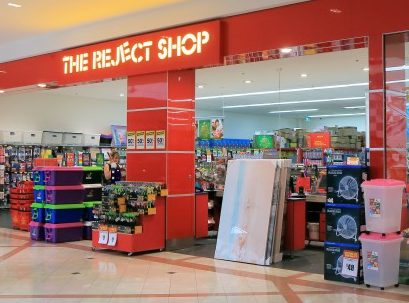It is decision time at The Reject Shop but the problem is who can make the decisions – especially the right decisions. The chairman of the board is stepping down and the retailer has yet to appoint a new CEO to replace Ross Sudano, who left the company in May. Sudano left as The Reject Shop sounded warnings that it would book a loss of between $1 million and $2 million for the full 2019 financial year, a sharp fall from the February forecast of a $4.1 million profit. The actual result booked f
oked for FY19 was much worse, a $1.5 million trading loss compared with a $16.6 million profit for the previous full financial year as well as an after-tax $15.4 million writedown on assets and goodwill.
The actual before-tax impairment charge booked was $21.9 million and follows a financial review by KPMG.
Scouting out failing stores
The bottom line for the struggling retailer was $16.9 million loss for FY19 and, in all likelihood, more costs to hit the current financial year results with decisions expected to be made on store closures.
In May, chairman Bill Stevens announced the appointment of LocationIQ, a property consultancy, to review The Reject Shop’s national network of around 360 stores. There is little doubt that the retailer has some poor and underperforming locations but there will be penalties to exit unexpired leases.
The writedowns of FY19 should provide some breathing space for an incoming CEO, but challenges will remain in respect to store network decisions, management capability, merchandise ranging and marketing.
Stevens claims the selection process for a new CEO is “progressing steadily” and well advanced but he has not indicated an expected date for a new appointment, an indicator that the retailer has yet to find its man or woman to take on its flagging fortunes.
Sales for The Reject Shop shrunk a further 0.8 per cent to $793.7 million in FY19, however, same-store sales actually fell by a more concerning 2.5 per cent. A net six new stores curbed the revenue decline for the full-year result and appear to have underpinned a 0.7 per cent lift in total sales for the first seven weeks of FY20.
The Reject Shop is battling to contain costs and margins are under pressure while footfall in stores and transaction values have also hit sales and earnings targets.
Stevens has delivered the bad news knowing full well there will be shareholders kicking themselves over their decision to accept the retailer’s recommendation to reject a $78 million takeover offer from Raphael Germinder’s Allensford last February.
Stevens had little option but to step down as chairman following that direction to shareholders. Also, subsequent revelations of the problems the retailer was facing led to a hefty loss to the balance sheet and a plunge in capital value to around $60 million as the share price fell.
To further add to the retailer’s woes and the difficulty for Stevens to continue as chairman, The Reject Shop has breached fixed charge cover covenants in June and will do so again in September notwithstanding modest gearing and a net cash position of $6.8 million at June 30.
The retailer’s bankers have provided a waiver for the June and September report dates, recognising the initiatives currently under way to restore profitability.
Stevens will step down as chairman and retire from the board in October at the annual shareholder meeting.
Returning to the core business
Leadership is the immediate problem for The Reject Shop, which has struggled to counter the rise in Kmart’s fortunes and the emergence of other competitors including Costco, Aldi and online retailers.
The retailer defined a new merchandise strategy to focus on categories such as storage and greeting cards earlier this year but seems to have done a backflip, perhaps as a result of the KPMG analysis of its financials.
Stevens has pointed out that gross margin fell as a result of increased price competition within the retail environment, markdown activity required to clear merchandise offerings that did not resonate with the customer base and an increase in the level of shrinkage across the business.
“With a sharp focus on improving our performance, we have identified errors and we are actively addressing them,” Stevens has told investors.
“Our now refocused strategy, centred around our core discount variety value proposition, is showing early signs of gaining traction with our customers.”
Acting CEO Dani Aquilina was less PR-speak, conceding that the new strategy is to go back to the retailer’s roots and the categories for which it is known by customers.
Aquilina claims the divergence from The Reject Shop’s core strategy into higher-priced fashion-based categories has let the retailer down in the prevailing retail environment and it wants to recapture its market position as a discount variety store.

